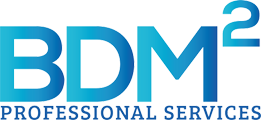
Understanding the Project Pulse Check
In the realm of project management, ensuring the health and vitality of your projects is paramount to success. Just as individuals need regular check-ups to monitor their well-being, projects also require periodic assessments to gauge their progress, identify potential issues, and recalibrate strategies if necessary. We like to refer to this process as a project Pulse Check when completing our Project Triage.
A Project Pulse Check serves as a comprehensive evaluation of various aspects of a project’s lifecycle. It involves analyzing key performance indicators, assessing team dynamics, reviewing milestones, and validating alignment with project objectives. The primary goal is to ensure that the project is on track, healthy, and positioned for success.
At its core, a Project Pulse Check involves the following components:
1. Performance Evaluation:
- Assessing progress against predefined metrics and benchmarks.
- Identifying areas of strength and areas requiring improvement.
- Identifying areas of strength and areas requiring improvement.
- Analyzing budget and resource utilization to ensure efficiency.
2. Risk Assessment:
- Identifying potential risks and evaluating their impact on project timelines and deliverables.
- Developing mitigation strategies to address identified risks and minimize their impact.
3. Stakeholder Engagement:
- Soliciting feedback from stakeholders to understand their perspectives on project progress and outcomes.
- Ensuring alignment between stakeholder expectations and project objectives.
4. Team Dynamics:
- Evaluating team performance, collaboration, and communication.
- Addressing any challenges or conflicts that may hinder project progress.
- Recognizing and celebrating team achievements to foster motivation and morale.
When Your Project Needs a Pulse Check
Knowing when to conduct a Project Pulse Check is crucial for maintaining project health and mitigating potential issues before they escalate. Here are some indicators that suggest your project may need a pulse check:
1. Missed Milestones or Deliverables:
- If your project is consistently falling behind schedule or failing to meet established milestones, it may be time to reassess its trajectory.
2. Budget Overruns:
- Exceeding budgetary constraints without a clear understanding of resource allocation and expenditure warrants immediate attention to prevent financial strain.
3. Communication Breakdowns:
- Poor communication among team members or with stakeholders can lead to misunderstandings, delays, and decreased productivity.
4. Unforeseen Risks or Changes:
- External factors or unforeseen risks can disrupt project plans. Conducting a pulse check helps identify and address emerging challenges proactively.
5. Decreased Stakeholder Satisfaction:
- If stakeholders express dissatisfaction with project progress or outcomes, it signals a need to reevaluate priorities and expectations.
Conclusion
In the dynamic landscape of project management, regular assessments are indispensable for steering projects toward successful outcomes which is why we now offer a Project Triage.
Remember, a healthy project is a product of vigilance, adaptability, and proactive management. Embrace the Project Pulse Check in our Triage as a tool for nurturing your projects to fruition and ensuring their lasting impact in the ever-evolving landscape of business and innovation.
Click here to complete a complimentary Project Assessment
